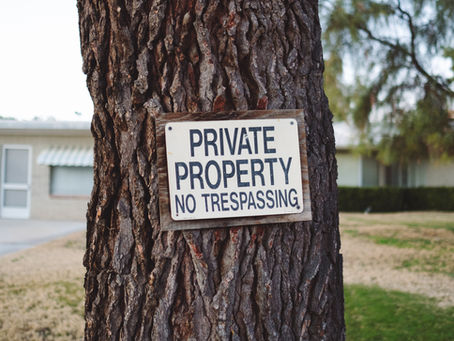top of page
TeachLaw Blog and Free Student Activities
At the end of every blog post, you’ll find a free student activity to download. These activities are designed to help you test your knowledge, apply the law, and build confidence for your exams.
Search

Tort Law
Click here to read all of the TeachLaw tort law blog posts


Evaluation of Negligence
Negligence Evaluation This blog focuses on evaluation of Negligence. A core Tort Law topic. Negligence is a type of civil wrong that allows individuals (claimants) to claim when they have suffered injury, loss or damage due to someone else’s actions or omissions. To succeed in a negligence claim, a claimant must prove three key elements: A duty of care was owed by the defendant. That duty was breached . The breach caused foreseeable damage . Duty of Care A duty of care exist
teachlawhub
Jan 165 min read


Breach of Duty in Negligence
Breach of Duty in Negligence Under the law of negligence, a claimant can bring a civil claim for compensatory damages if they have suffered injury or damage as a result of the defendant’s actions. The law of negligence is concerned with compensating individuals when injury or damage has been caused by the defendant’s failure to take reasonable care. To succeed in a negligence claim, the claimant must prove three elements: 1. That the defendant owed them a duty of care; 2
teachlawhub
Dec 30, 20257 min read


Tort Law Remedies
Compensatory Damages When a claimant has successfully proven their case in tort law, the court will award a remedy to address the loss or harm that they have suffered. A remedy is the legal outcome that is designed to put things right. The two main tort law remedies that the court can award are compensatory damages (a financial payment to the claimant) and injunctions (a court order requiring the defendant to do something or to stop doing something). In this blog, we will e
teachlawhub
Nov 1, 20254 min read


The Occupiers' Liability Act 1984
The Occupiers' Liability Act 1984 The Occupiers' Liability Act 1984 (OLA 1984) covers situations where a person enters land or property without permission (a trespasser). The Occupiers’ Liability Act 1984 provides occupiers with a limited duty of care to non-visitors (trespassers). The 1984 Act recognises that occupiers may still owe a duty of care to those who enter their premises without permission. This duty is far more restrictive than that under the 1957 Act, only person
teachlawhub
Oct 19, 20255 min read


Occupiers' Liability Act 1957
Occupiers' Liability Act 1957 The Occupiers' Liability Act 1957 (OLA 1957) protects lawful visitors from personal injury and property damage that may occur on premises. It establishes a common duty of care for occupiers to ensure visitors’ safety while on their property. This duty ensures that visitors are protected from personal injury or property damage while on the premises. The Act covers visitors with permission to be on the premises, such as: Invitees (those invited for
teachlawhub
Oct 11, 20253 min read


Negligence and Duty of Care: The Impact of Robinson.
Robinson v Chief Constable of West Yorkshire Police (2018). In tort law, a claim can be brought under the law of negligence when someone suffers harm because another person has breached their duty of care. A person who has been injured due to someone else’s negligence can bring a civil claim for compensation. But to win the case, they must prove three key things: The defendant owed them a duty of care. The defendant breached that duty. The breach caused their injury or damage
teachlawhub
Jun 1, 20256 min read


Rylands v Fletcher: Explained.
Rylands v Fletcher: A Level Law Rylands v Fletcher, an important area of tort law that often appears in exams. This area of tort law that deals claims where the defendant can be found liable and can be held legally responsible for damage caused by something that they have stored on their land, and it then escapes from their land and causes damage to the neighbouring land. Imagine this: your neighbour stores a huge tank of water in their garden. The tank bursts, and water floo
teachlawhub
May 25, 20254 min read
bottom of page